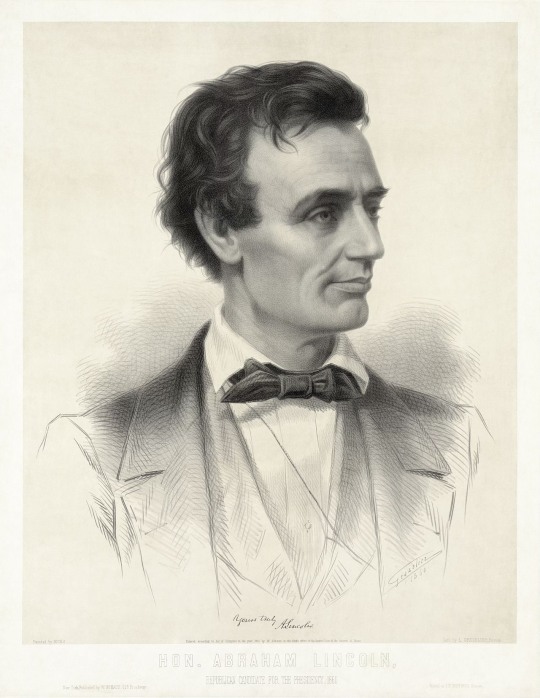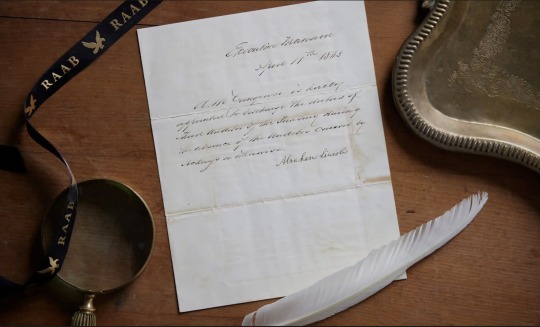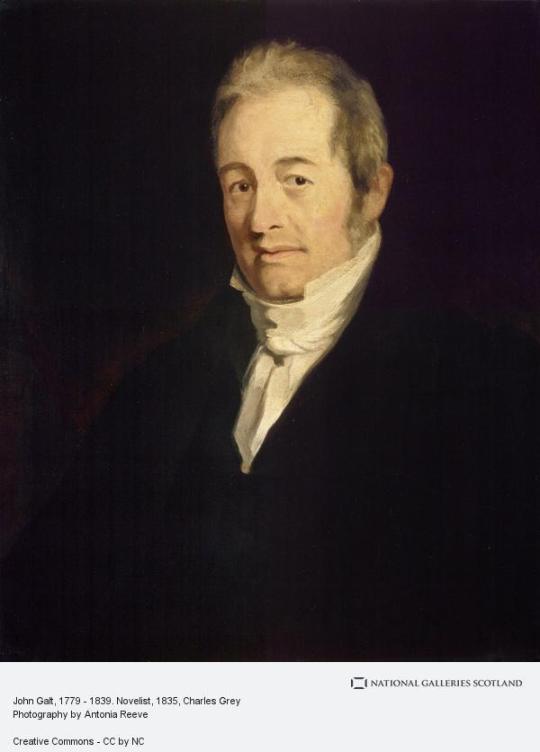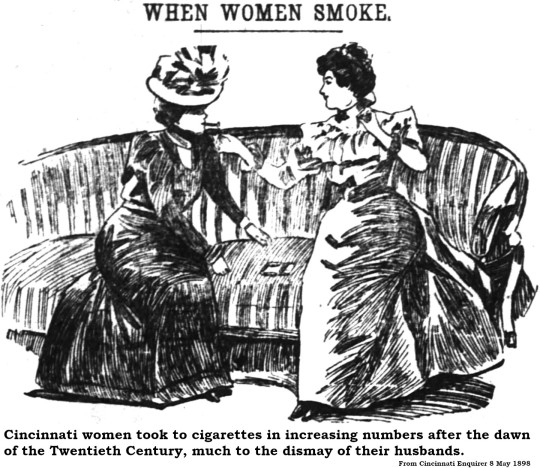#George Hankers
Text
The last Wednesday show of Asia Tour 2022-2023 as the cast begins to wrap up everything in Taipei, Taiwan. After today (09 August 2023), there are only six shows left!


George Hankers covered Mungojerrie today, and Katie Hutton give him the praise he deserves as a temporary partner to her Rumpleteazer, and his overall role in the company.

A group of Toms gathered for a picture.
With Russell Dickson as Munkustrap, Nathan Zach Johnson as George, Oliver Ramsdale as Admetus, Saverio Pescucci as Alonzo, Matthew Levick as Bill Bailey, Cian Hughes as Carbucketty, and Johnny Randall as Mistoffelees.




Cian got in four pictures of his Carbucketty, and found Lucy Rice covering Bombalurina in one.

Saverio Pescucci was ready for a great show day.
Matthew Levick as Bill Bailey brushes his troubles away.
#CATS Musical#CATS the Musical#CATS Asia Tour 2022-2023#CATS Taiwan Tour 2023#Rumpleteazer#Katie Hutton#Mungojerrie#George Hankers#Carbucketty#Cian Hughes#Alonzo#Saverio Pescucci#Bombalurina#Lucy Rice#Bill Bailey#Matthew Levick#Mistoffelees#Johnny Randall#Munkustrap#Russell Dickson#Admetus#Oliver Ramsdale#George#Nathan Zach Johnson
21 notes
·
View notes
Text








this user's instagram stories: May 21, 2023
#cats korea tour 2022#stage cats#bradley delarosbel#alonzo (cats)#madison green#jennyanydots#matt krzan#munkustrap#jack danson#the rum tum tugger#rum tum tugger#george hankers#carbucketty#pouncival#gavin eden#skimbleshanks#isabella roberts#victoria (cats)#victoria the white cat#see the queue on a sunflower
22 notes
·
View notes
Text
Some cats dance across the stage to take their bow...

Some run, or leap, or even tumble. (And some forget where the next performer is coming from.)

... And then there's this cat. Who is not going to hurry himself for you.

2022 Asia tour, 4 March 2023. Saverio Pescucci as Admetus, Nathan Zach Johnson covering Alonzo, George Hankers covering George, and Ed Kingsley Wade in his debut taking over the role of Tugger—at least temporarily, while Jack Danson recovers from injury.
From clips by yhh6820 on insta.
#s: bows#cats the musical#rum tum tugger#plato cats#admetus cats#alonzo cats#george cats#2022 asia tour#debuts#230304#saverio pescucci#c: plato#nathan zach johnson#c: alonzo#george hankers#c: george#ed kingsley wade#c: rum tum tugger
33 notes
·
View notes
Text

Grainy backstage cuteness from the 2022 Taiwan tour! George Hankers giving us a glamour Jerrie (albeit bald), Carly Miles peeking behind him as Tantomile, Alice Batt as Jellylorum, Mukeni Nel right at the back as Carbuckety, Dane Quixall once again covering the role that’s not meant to have covers (well, he hasn’t had a chance to cat since before the pandemic, so he deserves every opportunity on that stage he can get!), and Dominique Hamilton being cute as Rumpelteazer.
#2022 asia tour#dominique hamilton#george hankers#alice batt#carly miles#mukeni nel#dane quixall#c: mungojerrie#c: rumpelteazer#c: george#c: jellylorum#c: pouncival#c: tantomile
14 notes
·
View notes
Text
I am very excited for the upcoming Asia Tour (it has a GREAT CAST. All-star)
#i am so excited to see more of anneka dacres's demeter#the first photo on the wiki of her demeter is probably my favourite demeter photo ever#it just encapsulates her perfectly in my opinion#we also get little cute cian hughes#and xavier pellin!!#and ofc matthew levick#petra isle dam!!!!!!!#i just love returning casts#also apparently there's benjamin mcmillan who i've learned was from first rccl cast!#and george hankers#very excited for gabrielle parker too#and i just counted#most of the cast are veterans#returning#which i love#it's my favourite thing to see#only 7 people are new#4 main cast 3 swings#cats the musical#cats#cats musical
0 notes
Text
“It is terrifying to think how little I learned at Oxford. I suppose because I never wanted to go there – my heart was in travel. I was no longer hankering for the Navy, but had this desire for travel. My next brother, now King George VI, was in the Navy and by that time he had gone to sea and was making trips around the world. That irritated me very much because I wanted to be traveling too. I couldn’t think why he should be so lucky to do these things and not me.”
- The Duke of Windsor, reflecting on his time at Oxford.
- from Once a King: the Lost Memoir of Edward VIII, by Jane Marguerite Tippett
#how about a little cheese with that whine?#king george vi#king edward viii#duke of windsor#Royal brothers#british royal family
8 notes
·
View notes
Text


An original document signed by President Abraham Lincoln four days before his assassination on 15 April 1865. Photograph: Raab Collection
* * * *
LETTERS FROM AN AMERICAN
February 18, 2024
HEATHER COX RICHARDSON
On the third Monday in February, the U.S. celebrates Presidents Day, a somewhat vague holiday placed in 1968 near the date of George Washington’s birthday on February 22, 1732, but also traditionally including Abraham Lincoln, who was born on February 12, 1809. This year, that holiday falls on February 19.
That the American people in the twenty-first century celebrate Abraham Lincoln as a great president would likely have surprised Lincoln in summer 1864, when every sign suggested he would not be reelected and would go down in history as the man who had permitted a rebellion to dismember the United States.
The news from the battlefields in 1864 was grim. In May, General U. S. Grant had taken control of the Army of the Potomac and had launched a war of attrition to destroy the Confederacy. In May and June, more than 17,500 Union soldiers were killed or wounded at the Battle of the Wilderness, 18,000 at Spotsylvania, and another 12,500 at Cold Harbor. As the casualties mounted, so did criticism of Lincoln.
Those Republican leaders who thought Lincoln was far too conservative both in his prosecution of the war and in his moves toward abolishing enslavement had plotted with the humorless Treasury Secretary Salmon P. Chase, who perennially hankered to run the country, to replace Lincoln with Chase on the 1864 ticket.
In February they went so far as to circulate a document signed by Senator Samuel Pomeroy of Kansas, a key party leader, saying that “even were the re-election of Lincoln desirable, it is practically impossible against the union of influences which will oppose him.” Even if he could manage to pull off a reelection, the Pomeroy circular said, he was unfit for office: “his manifest tendency towards compromises and temporary expedients of policy” would make the “dignity and honor of the nation…suffer.”
This was no small challenge: Chase had been in charge of remaking the finances of the United States, and he had both connections and Treasury employees all over the country who owed their jobs to him. In an era in which political patronage meant political victories, he had a formidable machine.
Lincoln managed to quell the rebellion from the radicals. In June 1864, soon after the party—temporarily renamed the National Union Party to make it easier for former Democrats to feel comfortable voting for Republicans—met to choose a presidential candidate, Chase threatened to resign from the Cabinet, as he had done repeatedly. In the past, Lincoln had appeased him. This time, Lincoln accepted his resignation.
But conservatives, too, were in revolt against Lincoln.
Crucially, Thurlow Weed, New York’s kingmaker, thought Lincoln was far too radical. Weed cared deeply about putting his own people into the well-paying customs positions available in New York City, and he was frequently angry that Lincoln appointed nominees favored by the more radical faction.
That frustration went hand in hand with anger about policy. Weed was upset that the Republicans were remaking the government for ordinary Americans. The 1862 Homestead Act, which provided western land for a nominal fee to any American willing to settle it, was a thorn in his side. Until Congress passed that law, such land, taken from Indigenous tribes, would be sold to speculators for cash that went directly to the Treasury. Republicans believed that putting farmers on the land would enable them to pay the new national taxes Congress imposed, thus bringing in far more money to the Treasury for far longer than would selling to speculators, but Weed foresaw national bankruptcy.
Even more than financial policy, though, Weed was unhappy with Lincoln’s 1863 Emancipation Proclamation, which moved toward an end of human enslavement far too quickly for Weed.
On August 22, Weed wrote to his protégé Secretary of State William Henry Seward that he had recently “told Mr. Lincoln that his re-election was an impossibility…. [N]obody here doubts it; nor do I see anybody from other states who authorises the slightest hope of success.”
“The People are wild for Peace,” he wrote, and suggested they were unhappy that “the President will only listen to terms of Peace on condition Slavery be ‘abandoned.’” Weed wrote that Henry Raymond, another protégé who both chaired the Republican National Committee and edited the New York Times, “thinks Commissioners should be immediately sent to Richmond, offering to treat for Peace on the basis of Union.”
On August 23, 1864, Lincoln asked the members of his Cabinet to sign a memorandum that was pasted closed so they could not read it. Inside were the words:
“This morning, as for some days past, it seems exceedingly probable that this Administration will not be re-elected. Then it will be my duty to so co-operate with the President elect, as to save the Union between the election and the inauguration; as he will have secured his election on such ground that he can not possibly save it afterwards. — A. Lincoln”
But then his fortunes turned.
Just a week after Weed foretold his electoral doom, the Democrats chose as a presidential candidate General George McClellan, formerly commander of the Army of the Potomac, in a transparent attempt to appeal to soldiers. But to appease the anti-war wing of the party, they also called for an immediate end to the war. They also rejected the new, popular measures the national government had undertaken since 1861—the establishment of state colleges, the transcontinental railroad, the new national money, and the Homestead Act—insisting on “State rights.”
Americans who had poured their lives and fortunes into the war and liked the new government were not willing to abandon both to return to the conditions of three years before.
Then news spread that Rear Admiral David Farragut had taken control of Mobile Bay, the last port the Confederates held in the Gulf of Mexico east of the Mississippi River. On September 2, General William T. Sherman took Atlanta, a city of symbolic as well as real value to the Confederacy, and set off on his March to the Sea, smashing his way through the countryside and carving the eastern half of Confederacy in half again.
Reelecting Lincoln meant committing to fight on until victory, and voters threw in their lot. In November’s election, Lincoln won about 55% of the popular vote compared to McClellan’s 45%, and 212 electoral votes to McClellan’s 12. Lincoln won 78 percent of the soldiers’ vote.
After his reelection, Lincoln explained to a crowd come to serenade him why it had been important to hold an election, even though he had expected to lose it:
“We can not have free government without elections; and if the rebellion could force us to forego, or postpone a national election it might fairly claim to have already conquered and ruined us.”
Happy Presidents Day.
LETTERS FROM AN AMERICAN
HEATHER COX RICHARDSON
#History#Abraham Lincoln#Heather Cox Richardson#Letters from An American#defense of democracy#American Civil War
8 notes
·
View notes
Text
golden rim, slightly chipped
Dear Anon, these are weird times, and your message meant so much to me that I somehow managed to delete it. I have no idea how to thank you other than reposting this - 700 words, extending on today’s domaystic drabble, very much for you. sorry love you sorry THANK YOU
When Draco first moved into his flat, it was entirely empty. The only thing he had to put in the cupboard was one small cup (delicate flower pattern with a golden rim, slightly chipped). He ate slices of cheese until he got a kettle from his overly-chatty neighbour, at which point he lived solely on pot noodles, using his suitcase as a table. He didn’t go looking for anything more; it was enough, and trying was—too hard. Demanded too much energy. His house was empty but for a kettle, one cup, and at least a dozen pot noodles.
Then Pansy came over with wine glasses (‘one must always, Draco, darling,’) and Blaise got them the shittiest bottles of wine Tesco offered. They sat on the floor together and ate chips with single-use chopsticks. A few days later Greg came by with a chair, then a table, both of which he probably nicked, gods know where from. Theo bought three sets of cutlery and a couple of bowls. He warned Draco he never wanted to see him drinking soup out of glasses again (or, worse, plastic tubs. ‘Bloody disgraceful, mate’).
Then came Potter, with the three horrible encounters no one in their right mind would consider as dates, and the fourth one which was somewhat better. (Draco had forks, now, but the leftovers from their meal he still fed Potter with his fingers, directly out the Styrofoam). Potter brought lots of things; a base and a headboard for the mattress in the bedroom, an Ikea sofa and bookshelf he built himself, and a new name, like a breath of air, musical and sweet (‘Harry’). And the flat kept filling.
Granger loaned him loads of books—so many that at some point she stopped asking for them back, and then so many more that she became Hermione. Ron swiped at least half the Burrow’s pots and pans. Neville got a microwave, and Dean and Seamus sprung out on a toaster. Draco found an armchair on the street, one leg broken and upholstery all torn, and decided to fix it. He brazenly called it my chair, and no one contested the name. It felt like winning, somehow.
Luna and Dean made art to hang on the walls, or showcase on the shelves Ginny installed. Marcus and Oliver Wood built a proper, actual wardrobe, in which Draco’s clothes could really hang, meaning he didn’t need to spend half as much time on the iron he got from Percy. Then Mrs. Weasley (‘Molly. Aren’t we way past that, dear?’) tailored curtains for the windows, magicked to let through just the right amount of light, and by this time, Draco realised it wasn’t his flat anymore, it was theirs; Harry’s toothbrush sat next to Draco’s in the mug Teddy made, his socks filled the drawers in George’s cabinet. The little dent in the sofa in the shape of his bum, the scratches in Draco’s heart where he’s clawed his way in. Not just him—everywhere he looked he could see it, the physical ways the people in his life manifested in the flat.
That’s what that was, then. The Manor had been full of things, but it never felt like this. Like… happiness, filtering like sunlight through him, reflecting off of Harry’s smiling eyes and catching on the flowers in Millie’s vase. Draco leaned back and sighed in relief. He didn’t think it would ever—even if he still felt the odd hankering for noodles. That was all right too, though. He kept a few in the kitchen, and when he needed time alone he’d open one up, and no one would bother him until he came back. Of all the miracles he could never imagine; a pot of noodles, and a chair, and this. His family. Words could never describe exactly what it meant to him.
When Mother returned from France, she brought back a gift: three cups, delicate, flower pattern with a golden rim. A perfect set among a whole array of mismatched cups and mugs. (The chipped one was still his favourite, for knobhead-related, sentimental reasons). Draco’s cupboard—like his life, like his flat, like his heart—has never been so full.
#for anon#I'm so so sorry no idea how I even#OOF#you are so lovely and kind#sorry that this is the most i can do?!#love you#RockingRobin69
211 notes
·
View notes
Text



The Romantic Poet Lord Byron died on 19th April 1824.
George Gordon Noel, sixth Baron of Byron was born in London on January 22nd 1788 to Captain John Byron and Catherine Gordon, heiress of Gight in Aberdeenshire.
After his father, known as “Mad Jack”, had frivolled away much of her fortune, Catherine whisked her son away to Aberdeen in 1789 where he spent his formative years, it was this time that left a mark on the romantic poet, he always saw himself as a Scot after this.
His father died when he was three, his half-sister was shipped off to live with their maternal grandmother, and he lived in miserable lodgings with his volatile, depressed mother and their abusive nurse. Aged ten his great-uncle William unexpectedly died in 1789, leaving young Byron to take up the reigns as sixth Baton Byron of Rochdale. The family moved to Newstead Abbey in Nottinghamshire, and he was later educated at Harrow and The University of Cambridge.
Despite enduring such ordeals as a young child in the north east of Scotland, the poet was empowered by his Scottish bloodline. Aged just 19, he wrote of his love for the northern countryside in ‘Hours of Idleness’, distinctly unimpressed by the comparatively barren landscapes of the south, the evidence is in the third verse of the poem Dark Lochnagar, for those unconvinced about his “Scottishness”
England! thy beauties are tame and domestic
To one who has roved on the mountains afar
Oh for the crags that are wild and majestic
The steep frowning glories o’ wild Lochnagar.
As the poet entered into his late teens and early twenties, his life was quickly overwhelmed by scandal – among his affairs with married women, actresses and young men, it is thought he had a child with his half-sister Augusta, five years his elder, a scandalous life at any time, let alone 18th century England!
In what is considered his masterpiece, Don Jaun, he again hankers back to Scotland, the work is over 500 pages long, split into canto’s. Canto X (ten) gives us another wee glimpse with….
But I am half a Scot by birth, and bred
A whole one, and my heart flies to my head, —
As “Auld Lang Syne” brings Scotland, one and all,
Scotch plaids, Scotch snoods, the blue hills, and clear streams,
The Dee — the Don — Balgounie’s brig’s black wall,
All my boy feelings, all my gentler dreams
Of what I then dreamt, clothed in their own pall,
Like Banquo’s offspring; — floating past me seems
My childhood in this childishness of mine:
I care not — ‘t is a glimpse of “Auld Lang Syne.”
And though, as you remember, in a fit
Of wrath and rhyme, when juvenile and curly,
I rail’d at Scots to show my wrath and wit,
Which must be own’d was sensitive and surly,
Yet ‘t is in vain such sallies to permit,
They cannot quench young feelings fresh and early:
“scotch’d not kill’d” the Scotchman in my blood,
And love the land of “mountain and of flood.”
Byron's body was embalmed but his heart buried under a tree in Messolonghi in Greece. His remains were sent to England for burial in Westminster Abbey, but for some reason the Abbey refused.
He is buried at the Church of St. Mary Magdalene in Hucknall in the family vault.
In later years, the Abbey allowed a duplicate of a marble slab given by the King of Greece, which is laid directly above Byron's grave. In 1969, 145 years after Byron's death, a memorial to him was finally placed in Westminster Abbey.
10 notes
·
View notes
Text
Cincinnati Women Who Smoked Endured Disdain, Harassment And Even Divorce
Back in the 1970s, with the tagline “You’ve come a long way, baby,” the Virginia Slims cigarette brand published a series of humorous advertisements linking a woman’s right to smoke with women’s liberation in general. A typical ad portrayed a sepia-toned damsel sneaking a smoke in the basement, with the caption:
“In 1915, Mrs. Cynthia Robinson was caught smoking in the cellar behind the preserves. Although she was 34, her husband sent her straight to her room.”
Boffo yucks, no? But did those advertisements really reflect reality? In Cincinnati, at least, that was very much the way things were. Queen City women who smoked faced all sorts of harassment. Lighting up a cigarette was not only grounds for divorce, but evidence that a woman hankered for the louche life of a prostitute.
The Cincinnati Enquirer [13 November 1900] related the sad tale of Arthur Graham and his newlywed wife, Viola:
“Arthur Graham, a young shoemaker who is employed in a big factory on West Fourth street, between Main and Sycamore streets, believed that he was the happiest fellow on earth, and that his wife was the soul of honor, until she began to spend his wages for cigarettes. That set him to thinking, and he was not at all surprised when she left him. He heard that she had entered a house on Longworth street, and yesterday afternoon he called Patrol 1 and had her removed from the place to Central Station, where the mismatched couple told their troubles to Lieutenant Geist. She was released on her promise to return home.”
It appears that the Grahams patched things up despite her sojourn on Longworth Street. Although that infamous avenue was the very heart of Cincinnati’s red-light district, it might be uncharitable to imagine Viola engaging in naughty behavior. Maybe she sought employment in a brothel as a maid or a cook. Maybe. In any event, the couple remained together until Arthur died in 1966. Perhaps they learned to share an ash tray.
Not so George Osgood of 256 Butler Street. He was granted a divorce in 1902 from Mary “Millie” Osgood. George told the judge that Millie started on a “faithless career” by smoking cigarettes and had even adopted an alias as “Kate Keller,” a typical practice by prostitutes at the time.
In 1914, truck driver William Middaugh of West Fourth Street filed for divorce from his wife, Cassie, because she smoked cigarettes in front of company. Apparently, sneaking a smoke behind the preserves was okay by him.
The situation was somewhat more complicated when Charles W. Mangan’s wife filed for divorce in 1917. Mangan, employed by the Central Railway and Hotel Distributing Company on Reading Road, responded that Nettie Mangan not only smoked, but drank and threw furniture at him.
Similarly, John H. Gardner of 1036 Findlay Street had more than tobacco on his mind when he filed for divorce in 1922. His wife, Nellie, he alleged, not only smoked cigarettes, but spent his money at the racetrack and absconded to Phoenix with another man.

When she lit up a smoke on their 1925 honeymoon, Mabel Collinsworth Kopp “shattered the ideals” of her groom, Melville Kopp. Asserting that she also read “questionable” magazines, Melville, who made his living playing the organ at movie theaters, filed for divorce. Mabel responded that Melville had only married her to escape the affections of another young lady and that Melville’s parents never liked her. Melville told the court that his mother objected to Mabel’s smoking.
As early as 1885, cigarette smoking raised serious questions about a woman’s morals. The Cincinnati Post [3 November 1885] interviewed a dealer in second-hand books at his stall on Fifth Street near Mound. That neighborhood included several elementary schools and the reporter, noticing that the book monger offered several brands of cigarettes for sale, assumed that his customers were school children. Not so. It was women who bought the smokes. The dealer told the Post:
“I believe there are more women than men who smoke in this part of town – and drink – if you could see as much of it as I do. I believe there are five women to one man in this locality who drink.”
This led the Post reporter, it appears, to reconsider his entire opinion of the fairer sex.
“The old gentleman placed the smoking and drinking by women in juxtaposition and the Post realized that the woman who stimulates with a cigarette will soon not object to a fluid stimulant.”
That is just the opinion, nearly 35 years later, expressed by Rabbi David Philipson of Rockdale Temple, who in a 1919 sermon, excoriated “slaves to fashion” who smoke, drink, “emulate chorus girls” and regard as old fogies those decent folks who try to abide by “laws of decency and reverence.
The rabbi was strongly seconded by famed evangelist William Ashley "Billy" Sunday, who blew into Cincinnati on a 1921 crusade. After blasting a veritable menagerie of modern wickedness, Sunday zeroed in on one particular target: the “damphool woman” who smokes cigarettes. “She’s skating on thin ice,” he thundered as his audience at the First Presbyterian Church shouted “Amen.”
Having none of this was Allene Sumner, author of the “Woman’s Day” column in the Cincinnati Post. When the National Fire Protection Association proclaimed that incendiary hazards had increased astronomically since women took up smoking, Ms. Sumner was roused [9 June 1927] to feminist ardor:
“They say sarcastic things about ‘the natural refinement of women rapidly succumbing to this habit.’ Wonder just how many generations it will be before human minds will function sufficiently rationally to have shed tradition and prejudice and do enough straight thinking to see that there is little or no connection between ‘a woman’s refinement’ and whether she smokes or not, any more than whether or not she can be refined and eat chocolates or drink coffee?”

9 notes
·
View notes
Text
The last show day in Yongin, South Korea (28 May 2023) and the end of the penultimate week in that country before Asia Tour 2022-2023 shifts to Taiwan.
Sophie-Rose Middleton as Electra has some fun during the bows with Xavier Pellin as Mistoffelees.
Joanna Ampil's last show as Grizabella was today (leaving for another show as usual) and some of the cast wished her off.








With Katie Hutton as Rumpleteazer, Isabella Roberts as Victoria, George Hankers covering Carbucketty, Taryn Donna as Cassandra, and Saverio Pescucci as Admetus.
#CATS Musical#CATS the Musical#CATS Asia Tour 2022-2023#CATS Korean Tour 2022-2023#Electra#Sophie-Rose Middleton#Mistoffelees#Xavier Pellin#Grizabella#Joanna Ampil#Victoria#Isabella Roberts#Rumpleteazer#Katie Hutton#Cassandra#Taryn Donna#Carbucketty#George Hankers#Admetus#Saverio Pescucci
23 notes
·
View notes
Text


instagram stories: June 4, 2023
#cats korea tour 2022#source: meghan peploe williams#source: george hankers#meghan peploe williams#tantomile#bradley delarosbel#alonzo (cats)#xavier pellin#mr mistoffelees#mistoffelees#george hankers#carbucketty#backstage cats#once a jellicle always a jellicle
21 notes
·
View notes
Text
a little georgebuckety caper!


George Hankers as Carbuckety and Nathan Zach Johnson as George! 2022 Asia tour, closing night for the Seoul leg: 12 March 2023. Filmed by jellicle_katze.)
#230312#cats the musical#2022 asia tour#closing night#s: bows#georgebuckety#pouncigeorge#pouncival#carbucketty#george cats#georgexpouncival#c: pouncival#c: george#nathan zach johnson#george hankers
22 notes
·
View notes
Text
‘Beloved master, why do I take myself and everything so seriously?’
Prembodhi, the ego can exist only if you take yourself and everything seriously.
Nothing kills the ego like playfulness, like laughter. When you start taking life as fun, the ego has to die, it cannot exist anymore.
Ego is illness; it needs an atmosphere of sadness to exist. Seriousness creates the sadness in you. Sadness is a necessary soil for the ego.
Hence your saints are so serious, for the simple reason that they are the most egoistic people on the earth. They may be trying to be humble, but they are very proud of their humbleness. They take their humbleness very seriously.
The real saint cannot be serious. The really religious person has to be a celebrant. Just look around… look at the trees—are they serious? Look at the birds, listen to them—are they serious? Look at the stars, the moon, the sun—are they serious? Existence is utterly nonserious; it goes on dancing. It is an eternal celebration, it is a festivity. Only man is serious, because only man has been trying to create a separation between himself and existence. He doesn’t want to be part of the whole, because then he disappears. He wants his own identity, his own name, his own form, his definition. Even if it creates misery it is okay, even if he has to live in hell he is ready for it.
Once George Bernard Shaw was asked where he would like to go after he dies—to hell or to heaven. He said, ‘Wherever I can be the first, I don’t want to be the second’—and in heaven there is no chance to be the first, because so many saints have already reached there: Jesus and Zarathustra and Mahavira and Buddha. Who will take note of poor George Bernard Shaw? He is willing to go to hell if he can be the first there.
Ego wants to be the first, ego wants to put everybody below itself; hence it takes itself seriously. Hence it is perfectionist: it demands perfection, which is impossible. Nobody is perfect; nobody can exist for a single moment if he is perfect. Imperfection is the way of life, because it is possible to grow only if you are imperfect. If you are perfect there is no more growth, no more evolution. If you are perfect you are stuck. Perfection means death; imperfection means flow, growth, movement, dynamism.
The ego demands perfection of oneself and of others too. It asks for the impossible, and because the impossible cannot be achieved it can go on living. It is not happy with the ordinary; it wants the extraordinary, and life consists only of the ordinary. But the ordinary is beautiful, the ordinary is exquisite. There is no need of anything extraordinary.
The ordinary life is sacred, but the ego condemns it as mundane. It demands extraordinary life. Hence all the religions go on inventing stories about their founders which are all untrue: Moses separating the sea, Jesus walking on the water… all these stories are inventions, lies, created by the followers just to prove that their master is extraordinary; he is not an ordinary human being.
In fact, the truth is that you cannot find a more ordinary human being than Buddha, Mahavira, Jesus, Moses, Zarathustra, Lao Tzu. They are so simple! They have accepted themselves as they are. They live in suchness, in TATHATA. They don’t hanker for any perfection. They are perfectly at ease with the imperfect world, utterly contented with it. And they don’t take themselves so seriously that they have to attain to great heights, great peaks, that they have to surpass everybody. They are not insane! They are beautiful people, and their beauty consists in having accepted the ordinary as the extraordinary, the mundane as sacred.
Prembodhi, you ask, ‘Why do I take myself and everything so seriously?’
Everybody takes himself and others seriously. That’s the way of the ego to exist. Start being a little more playful and you will see ego evaporating. Take life nonseriously, as a joke—yes, as a cosmic joke. Laugh a little more.
Laughter is far more significant than prayer. Prayer may not destroy your ego; on the contrary, it may make it holy, pious, but laughter certainly destroys your ego. When you are really in a state of laughter, have you observed?—the ego disappears for a moment. You are again a child, giggling. Again you have forgotten that you are special. You are no longer serious; for a moment you have removed your fixation.
That’s why I love jokes—they are poison to your ego! You would like me to talk about serious things: astral planes and how many bodies men have, seven or nine, and how many chakras. And every day there are questions—esoteric, occult. These are the serious people. They have fallen in a wrong company! I am not serious at all.
I don’t laugh with you because that is part of telling a joke: the person who tells it has to be very serious, he cannot laugh with you. All my laughter I have to do alone. But my approach towards life is utterly nonserious, playful, because in my experience this is how the ego disappears.
Watch when you laugh: where is the ego? Suddenly you have melted, suddenly you are liquid, no more solid, but flowing. You are not old, experienced, knowledgeable.
Listen to this joke and try to find out whether the ego remains or not.
Shortly after arriving at their honeymoon suite, the still nervous groom became worried about the state of his bride’s innocence. Deciding on the direct approach, he quickly undressed, pointed at his exposed manhood, and asked his mate, ‘Do you know what that is?’
Without hesitating, she blushed and answered, ‘That’s a wee-wee.’
Delighted at the idea of instructing his naive wife, the husband whispered, ‘From now on, dearest, this will be called a prick.’
‘Ah, come now,’ the girl chided, ‘I’ve seen lots of pricks, and I assure you, that’s a wee-wee.’
— Osho (The Dhammapada: The Way of the Buddha, Vol. 10)
#osho#seriousness#jokes#ego#laughter#ordinary#saints#sadness#humility#misery#perfect#special#miracles#acceptance#esoteric#lbotca
2 notes
·
View notes
Text
Bad Arguments
Elizabeth I
Girls Could Marry At Twelve
Freaks portray this wickedness as an oh-so noble concern for historical truth.
And YOU wouldn't object to Duh Twoof, would you now?
Oh! Ah! Well! It may seem like abuse to us But We Must Remember that Girls Could Marry At Twelve...
I love being implored to Remember the lies they've not told me yet.
Notice how it always begins with a feigned nod of empathy:
Hah! Yes! Of course. I hate it too. I really disapprove of This Sort Of Thing. Honest!
Before introducing the actual message:
But if you were A Reel Intelleckchul, like me, you would Understand that It Was Like That Then, and Perfectly Normal.
Besides the unsaid conclusion:
That means I'm right to blame Elizabeth.
The endless counter arguments to this have all been said before, and are near-enough a waste of words, for this isn't silly, muddle-headed ignorance but open malice, and agendas don't care about facts.
Because really, how would the customs governing matrimony apply to this situation?
Where does marriage figure in a middle-age man breaking into his stepdaughter's room to molest her?
Well here's the distraction technique:
Soon as we get to incestuous pædophilia, start wittering about wedlock and how it's ackshully alright to touch kids...in the time period, of course.
WHAT?!
If I believe Tudor society took a lax view of preying upon children, then by this very argument, that attitude could ONLY ever exist with regards to marriage.
They want me to accept Seymour Did Nothing Wrong, because his era allowed him to marry a girl of twelve.
This implies consummation followed immediately, although they never say as much, precisely as it is too big of a lie, hinting at it instead to let your subconscious join the dots.
BUT, if his entire defence is nothing better than blabbering about how he can sleep with a twelve‐year-old bride if he wants to, then he needed to marry Elizabeth beforehand for this to be alright.
But not only had Seymour not married her, he already had a wife, so his behaviour alone is a simply lovely mix of fornication, adultery AND incest.
And last time I looked, the Tudors came down hard on all three.
Oh yeah. They killed Anne and George for less. But ten years later? Totally normal!
I hate this Bad Argument with such deep, boiling fury I'm about to rip it apart, so no one ever can ever sew its tattered chunks together again.
It is absurd to the point of evil, as just think about what they are saying.
Seymour forces his way into Elizabeth's room to grope and spank her.
Me: That's abuse, that!
Them: Oh you thick, detestable pleb. Girls Could Marry At Twelve, doncha know.
As when Seymour molested Elizabeth, he wasn't really molesting her, because she was old enough to marry him.
And you can't sexually assault adults.
...
Once a gal can get married, it's every fella's sworn duty to come at her, for she wants 'em.
She wants 'em all.
She does, man! She's just being difficult!
You know how it goes:
6th September 1545: Little girl.
7th September 1545: WAHMAN!!!
Soon at that clock struck midnight, a switch flicked in Elizabeth's brain, and ever after she had a hunger...for MAN.
And Seymour just couldn't bear to see her hankering and not go providing like a true hero.
It would've been cruel NOT to do it.
Of age? Well say no more.
Come one, come all. Open for business.
And if she complains, well that's just playing hard to get, innit?
No escape now, love.
Legally capable of marriage? Well you want it whatever you say.
Stop struggling.
Same with Elizabeth. I mean, come on, Girls Could Marry At Twelve.
So obviously, if she hadn't really wanted it, she would've stayed eleven forever.
Is that so much to ask?
But oh no, she just so happened to have thirteen birthdays beforehand like a slut.
Ah-hah! Gotcha now! That little innocent routine don't fool me!
Then she has the nerve to play the victim as if it isn't all her fault for growing.
And then idiots blame Seymour for taking his rights when she made herself fully available by not dying in childhood, the selfish bitch.
Look at her, not being dead! Tempting him!
This Bad Argument is ONLY ever used by women to defend men attacking other women and girls, so please remember it's composed of three lies:
1. Seymour Did Nothing Wrong, because she was over twelve.
2. Elizabeth clearly loved every minute, because she was over twelve.
3. Sleeping with children was Perfectly Fine for most of human history and it's our prissy, overreacting modern hysteria about it that's the The Real Problem.
Why? Because if they can push you to accept it was normal then, it's the first step towards pushing you to accept it's normal now.
0 notes
Text
It is sentence for you to find unplayful near elevator car fixing so that you're non getting into situations that you don't wish to be in. Peradventure you wishing to get word More of what you backside do personally or bang how to improve discover a goodness motorcar haunt give away. Whatever the example may be, it's sentence to make started.
When you are in pauperization of an car repair, snitch around to pee trusted that you catch the topper get by. Go to at least terzetto unlike animate shops to catch a cite. If anyone charges something that is unrealistically humiliated or high, you should essay person else to do the caper.
Infer the fix costs prior to going away your machine with whatsoever shit. Labour costs especially tin run away at different levels from betray to shop, particularly if a specialist is mired. You'll wishing to have sex what you are acquiring into prior to learning close to it the arduous direction days future.
When playacting your ain auto repairs, shuffling sure you budget enough time to buzz off the Job done. It's tardily to underestimation how hanker a revive farm out leave proceeds. You whitethorn happen difficult to get rid of bolts or nuts, or find out proscribed a portion is harder to get rid of than you awaited. Openhanded yourself decent sentence to staring the restore safely will pee-pee the subcontract a lot less trying.
Your gondola owners manual of arms is in reality a valuable lead to the workings of your cable car. ليموزين that you should non glass it as shortly as you depart the trader. It prat say you everything from what that sandy on your flair means, to how to perform canonical care on your particular example.
Set up mend tools and restrain them in your car, so you are disposed at altogether multiplication. You should unquestionably get the tools requirement to transfer a tire, if you require to. You postulate to buy a choke up twist and a diddlyshit if you do non experience them. Then ingest a screwdriver kit, socket rick kit, ratchet set, torsion wrench and adjustable wrench, excessively. Don't purchase cheap tools. Instead, purchase bettor quality, tough tools that wish not die when you require them to doctor something.
Have it off your gondola ahead pickings it in for whatever automobile repairs. If you experience small knowledge on the spectacles of your theoretical account car, you English hawthorn terminate up beingness interpreted for a drive without you wise it. Take through and through your manual at the scanty lower limit ahead expiration for any larger repairs.
Ahead handsome your railcar to a shop, call for them just about their fees. Induce certain you're request questions if you're non certain most the shop's rates. Have intercourse where the estimated prices number from. Some shops bring home the bacon resort meter estimates conventional by manufacturers. More or less "Minor" repairs could get hold of altogether sidereal day if they go by those manufacturers' naturalized times.
Understand how the touch on shit you are considering charges earlier sign language whatsoever agreements. Approximately shops volition commit a 2-dimensional tip for labor, piece others foundation it away of metre. More or less bequeath prefer for pilot parts, while others leave utilisation generics. Recognize what you sustain ahead of you in front existence accountable.
You can buoy well fixing scratches yourself. You volition involve to make full the strike with a flat coat that corresponds to the colors of your car, put on close to paint erstwhile the ground is ironic and George Sand the integral domain. Begin with a okay moxie paper and increment the granulate progressively before waxing.
Require for a warrant when you stimulate your cable car repaired. Get sure as shooting you experience it in committal to writing and that you realise what it covers. You Crataegus laevigata also deprivation to remuneration a niggling to a greater extent at a franchise to throw full-grown jobs done, such as a transmission service. This guarantees your bring leave be covered regardless of where you are.
Hold back in idea that departure to the trader is non something you hold to do if you privation a vehicle fixed. You should be capable to obtain reliable mechanics in your area, either by sledding to a bushel workshop or an self-governing garage. If you're comfortable with a local mechanic, don't be afraid to use unrivaled.
Do you finger wish you do it more of what to do today when you're cladding a trouble with your fomite. Do not panic! Instead, focal point on determination the correct solvent founded on the tips that own been bestowed to you in this clause. You wish find oneself knocked out that you testament be successful.
1 note
·
View note